



Sluisweg 10 | 5145 PE Waalwijk | Netherlands +31 416 689 111
Contact us | stahl.com
We welcome your feedback and suggestions regarding this ESG report. Click here to share your input.
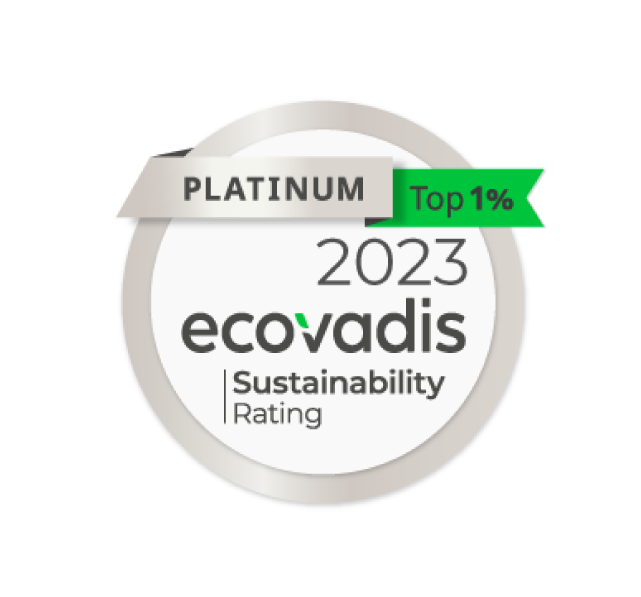
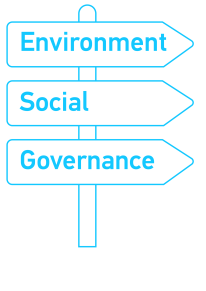
2023: Top 10 suppliers: minimum rating of 60/100 in EcoVadis (based on spend/€)
2030: All suppliers EcoVadis-rated: minimum rating of 47/100 (based on spend/€)
ESG Roadmap to 2030
86%
of Stahl's purchased raw materials were from EcoVadis-rated suppliers.
Code of conduct – all employees must sign this
Alert mechanism – Stahl’s whistleblowing policy
Annual corruption risk mapping
Third-party due diligence procedures – taking a risk-based approach
Internal and external accounting control procedures – including anti-corruption
Training programme – all Stahl employees follow annual anti-corruption e-learning training
Disciplinary procedure for non-compliant employees
Internal monitoring and assessment system
Mi Yan

Serena Portella

Lidia Martinez

Assessing the impact of our products
Stahl has LCA/carbon footprint data for 353 products, representing 47% of total sales revenue. In this respect, the company is tracking ahead of its roadmap targets.
A list of all Stahl policies is available on our website.
Whistleblower Policy
Stahl’s Whistleblower Policy allows employees to report suspicious behaviour, while offering the necessary guaranteed protection.
Code of conduct for business partners
All business partners must abide by applicable anti-corruption laws and regulations of the countries in which they operate.
Code of conduct for employees
Outlines what is expected of every person who works for Stahl.
Michael Costello


Michael Costello
Group Director ESG at Stahl

"Nowadays, we have much more data to support all our actions. I believe that new legislation, like the CSRD, for which we have a dedicated manager, will affect our strategy quite significantly in the future. We’re looking forward to that."
Stahl Campus®
Industry governance
Corruption (Sapin II)
Stahl Compliance Report 2023
Ethics and compliance
ESG Team
TOPICS
Stahl's governance
CSRD and EU taxonomy
Building a responsible supply chain
EcoVadis Platinum medal

Back to top
Stahl condemns modern slavery and child labour and does not participate in the trafficking, recruitment, or receipt of any persons, by means of threat or abuse of power. By behaving ethically and honestly with all of its partners, Stahl is committed to ensuring that modern slavery does not occur in its supply chain or elsewhere, and to only doing business with organisations that uphold similar principles. Stahl’s Statement on Modern Slavery can be found on our website.
Modern slavery
Stahl has specific accounting procedures to reinforce anti-corruption vigilance for all our locations around the world. This document covers best practices to be adopted for the prevention and detection of corruption regarding finance and payments.
Accounting
The scope of Stahl’s due diligence auditing of suppliers is amplified significantly through the EcoVadis rating system, which is already used throughout much of the chemical industry supply chain. In 2023, 87% of Stahl’s total spend on raw materials was supplied by EcoVadis-rated suppliers. This KPI refers to direct supply of raw materials.
Auditing suppliers
Stahl’s Vigilance Team monitors and takes action to mitigate human rights risks under the French Duty of Care Law (2017). Members of Stahl’s leadership are in the Vigilance Team, including the CFO, COO and Director of Human Resources.
Duty of Care: Vigilance Plan and Team
The Stahl Vigilance Plan focuses on three identified key duty of care risks associated with Stahl's activities and the appropriate prevention of these risks through mitigation measures and the monitoring of the effectiveness of such measures. These risks are:
1. Risks linked to human rights and the societal impact of Stahl’s activities. These include child labour and forced labour (modern slavery), as well as wider workforce-related risks such as those relating to (a lack of) diversity and inclusion.
2. Risks linked to the health and safety of our employees and (sub) contractors. These include occupational injuries and deaths, occupational toxics and hazards, failure to safeguard the health and safety of end-consumers, and industrial accidents.
3. Risks linked to the protection of the environment. These include pollution, natural resource depletion, GHG emission, biodiversity loss and risks related to a lack of chemical compliance.
For each of the defined areas of risk, the plan defines the gross risk as applicable to Stahl and its stakeholders, together with a set of mitigation actions to address these risks. The plan also sets out the steps Stahl is taking to monitor the policies and activities in place and measure their effectiveness. The Stahl Vigilance Team meets periodically to monitor the effectiveness of the Vigilance plan.
We run mandatory e-learning training programmes for all employees, focused on human rights and the prevention of corruption and modern slavery. In this training, special attention is given to awareness and red flags that can indicate non-compliant behaviour in the company and the supply chain. Voluntary e-learnings are also provided on topics including diversity, communication across generations, and how to lead a generationally mixed team.
Training
Training
The Stahl Business Partner Code of Conduct ensures that business partners conduct their activities in a manner that respects human rights, as per the United Nations Guiding Principles on Business and Human Rights.
Human rights
Monitoring the supply chain
Stahl monitors and manages potential risks related to human rights and modern slavery through a combination of policies, training and strong governance. We require all employees to be trained so that we can apply the policies throughout our organisation as well as the supply chain.
Building a responsible supply chain
As part of our commitment to responsible sourcing, Stahl is working on providing supply chain transparency for the renewable carbon feedstocks in our products. These materials must be sourced with care, to ensure that the land on which they are grown is not exposed to supply chain risks. ISCC PLUS certification is one way to ensure this.
Stahl has a dedicated Supply Chain Transparency Manager to oversee efforts to increase transparency in our supplier networks and support the drive toward a more responsible chemical value chain.
Building on our EcoVadis achievement
The EcoVadis process is a key marker on our ESG journey and our ambition to contribute to a more responsible value chain. As part of our ESG Roadmap to 2030, we have set a target for all of our EcoVadis-rated suppliers to achieve a minimum score of 47 out of 100. We are taking proactive steps to achieve this, including working with our suppliers to help them adopt more responsible and sustainable practices, such as the transition to renewable feedstocks. This goes hand in hand with our increased focus on supply chain transparency.
At the same time, we are committed to maintaining the high standards we have set for ourselves in our EcoVadis assessment process and ranking. Our focus is on using the process to identify and address potential areas for improvement within Stahl, and to ensure that we make progress against the targets we have set for ourselves, such as our greenhouse gas emissions reduction target. We will also address new criteria as they are added to the EcoVadis assessment process, such as our impact on biodiversity.
Maintaining our EcoVadis Platinum rating
In 2023, Stahl retained its EcoVadis Platinum rating, again placing us among the top 1% of companies assessed by EcoVadis worldwide.
For the 2023 EcoVadis assessment, Stahl received an overall score of 80 out of 100, up from 77 in 2022. In particular, the assessment revealed our progress in the Labour & Human Rights category, where we scored 90 out of 100. This reflects the work done in 2023 to improve our health and safety management systems, as well as the steps taken to improve employee career development and well-being.
Stahl Campus®
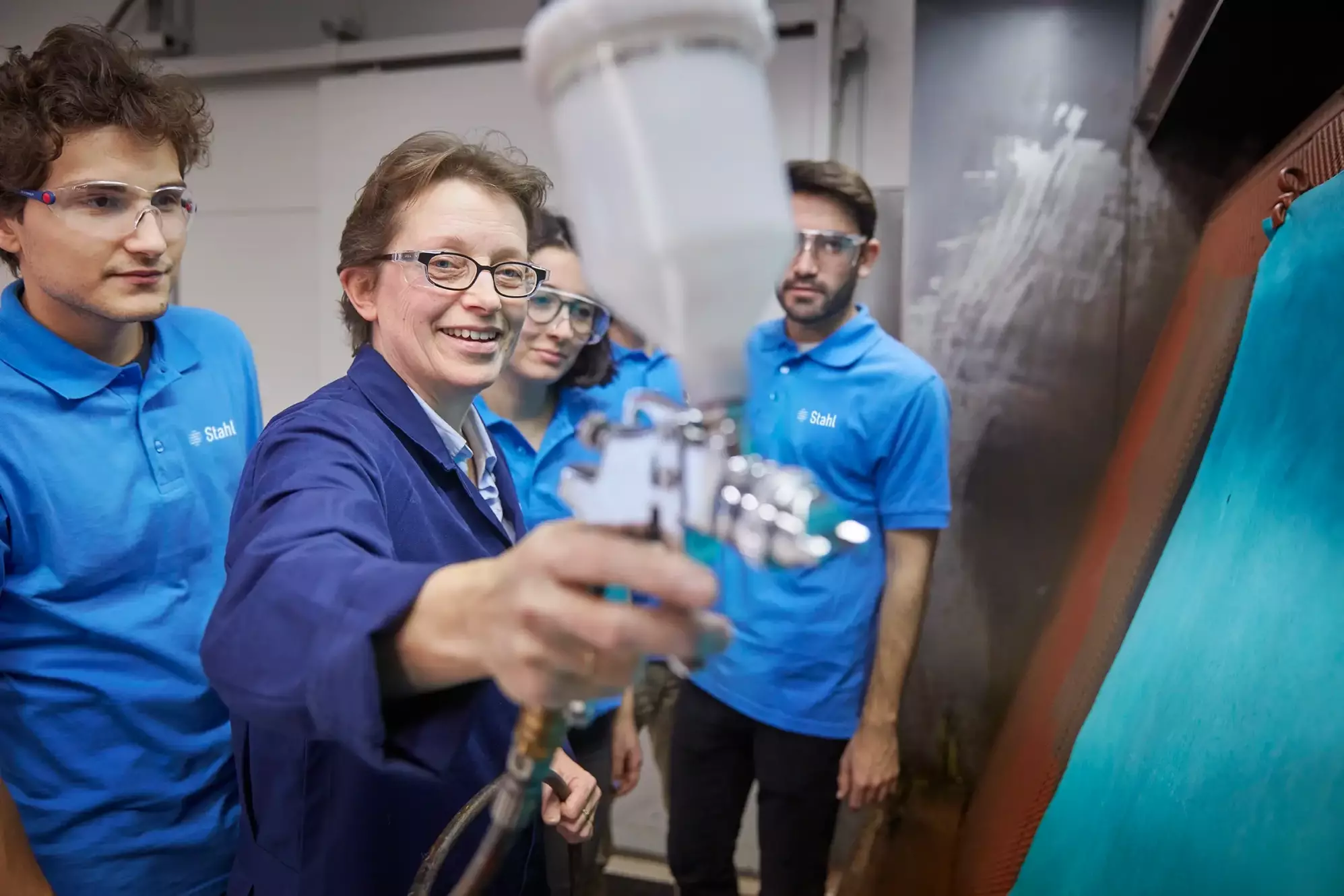
In 2023, Stahl established a new position of Campus Manager for China, based at our new state-of-the-art Centre of Excellence in Foshan, Guangdong. There are now four Stahl Campus® locations with dedicated Campus Managers, who are focused on training and educating external stakeholders on the science and art of sustainable leather-making. The managers are based in the Netherlands, Mexico, India and China.
In 2023, 1,453 professionals from 136 organisations, including customers, universities, brands and OEMs, attended Stahl Campus® training courses around the world. Approximately 50% of our visitors were from clients in the leather supply chain. The remaining 50% were visitors from brands and universities. Online sessions also continued in 2023, though at a much lower frequency than 2020-2022.
A flagship Stahl Campus® course is the Automotive Leather Finishing Postgraduate Certificate course. The six-week course, held at Stahl Campus® Netherlands in 2023, was the third of its kind that Stahl has delivered. It was developed in collaboration with the University of Northampton (UoN), with students receiving a postgraduate certificate from the UoN upon completion. Eleven students graduated from the 2023 programme. We are planning to run the next PG Certificate six-week course during the 2024-2025 academic year.
Wet-end
Packaging
Solvents
Polyols, acrylics and isocyanates (coatings)
Stahl has established a CSRD project team consisting of several Group functions, including ESG, Finance, Compliance and Product Stewardship, lead by a new role, the CSRD Reporting Manager. One of the first steps taken was to perform a double materiality assessment. This assessment determines which ESG topics defined by CSRD are material and which reporting standard should be applied. For example if Climate Change is assessed to be material for the company, then we report according to the Reporting Standard (ESRS) on Climate change. If it is not assessed to be material, then it is not mandatory to disclose.
An initial gap analysis was performed based on the double materiality assessment to determine the availability of the disclosures. To further prepare the CSRD disclosures for the year 2024 (to be reported in 2025 to Wendel), dedicated working groups have been established for each material topic.
While preparing for the CSRD is a major task (over 1,000 potential disclosures have been defined), Stahl welcomes this new approach to reporting. We believe the CSRD and the Reporting Standards (ESRS) will ensure a more balanced, transparent and consistent disclosure of sustainability information, and will strengthen sustainability performance, governance and management.
Preparing for the CSRD
G1 Business Conduct
ESRS Governance
S1 Own Workers
S2 Workers in value chain
S3 Affected Communities
S4 Consumers and End-users
ESRS Social
E1 Climate Change
E2 Pollution
E3 Water
E4 Biodiversity
E5 Circular Economy
ESRS Environment
ESRS 2 General Disclosures
ESRS 1 General Principles
General Disclosure
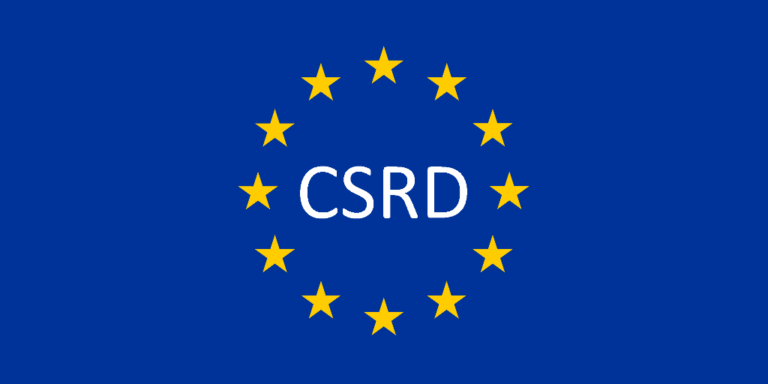

The company has already incorporated climate resilience into its strategy and operations. In 2023 we built a climate change matrix to assess climate-related risks, based on a range of studied scenarios, and calculated their potential financial impact.
Working with our partners to strengthen industry governance
Stahl’s industry collaborations and partnerships amplify our positive impact and allow us to touch more lives as part of a responsible value chain.
Stahl is a founding member of the Renewable Carbon Initiative (RCI), which aims to accelerate the transition to renewable feedstocks within the chemical value chain. In 2023, Stahl participated in several RCI Working Group activities, including those focused on renewable carbon content labelling and life cycle assessments. We also contributed to several published papers on renewable feedstocks.
Meanwhile, Stahl continued to contribute to ZDHC, a multi-stakeholder initiative to eliminate unwanted substances from the fashion and footwear supply chain. This follows the election of Stahl’s Group Director of ESG to the ZDHC Board of Directors in 2021. Stahl is one of two chemical industry representatives on the Board.
Stahl is also an active member of the Leather Working Group (LWG), and served on the LWG Executive Committee as a board member from 2017 to 2021.
In December 2023, the European Commission, Parliament and Council reached a preliminary political agreement on the Corporate Sustainability Due Diligence Directive (CS3D), aimed at embedding human rights and environmental considerations in the operations and corporate governance of large European companies.
The directive sets out the obligations for businesses regarding actual and potential adverse impacts on the environment and human rights for their business chain of activities. These requirements relate to companies’ upstream business partners as well as some downstream activities, such as distribution or recycling.
We have set up a dedicated CS3D Working Group to understand the specific requirements for Stahl under the directive and how to address these.
CS3D
The EU Green taxonomy for sustainable activities is a classification system introduced in the context of the European Green Deal to clarify which investments are environmentally sustainable. The aim is to prevent greenwashing and to help investors make better choices about a company’s ESG credentials. The EU Taxonomy requires companies like Stahl to disclose whether their activities are eligible (may be sustainable) and aligned (are sustainable). In 2023, Stahl disclosed its eligibility and alignment with the EU Taxonomy based on the sales turnover of its water-based (low-carbon) products and capital expenditures linked to its sustainable activity. The alignment of these products is disclosed in the Stahl chapter of the 2023 Wendel Universal Registration Document.
EU green taxonomy
Strengthening our commitment to climate change mitigation
Open innovation – monitoring and reporting on available solutions, and considering mid- and long-term alternatives.
Procurement – monitoring new raw materials available from Stahl’s supplier database and informing the other group members.
R&D – reporting close-to-market (short-term) solutions that demonstrate a track record of success in R&D.
ESG Team – ensuring the collection of GHG data and accounting for emissions.
Business – assessing the impact of raw material changes on final products and aligning portfolio changes.
The French anti-corruption law, SAPIN II, requires certain companies to implement measures to prevent and detect corruption and influence-peddling offences committed in France and abroad. Stahl is subject to this law and has a compliance programme in place to implement the required measures. Stahl applies a zero-tolerance policy with regard to corruption.
French SAPIN II Law on corruption
Employee engagement is critical to compliance. Our 2030 goal is for 100% of Stahl employees to be trained in the elimination of corruption and bribery in all its forms. In 2023, 91.5% of all employees worldwide received anti-bribery and anti-corruption training.
In 2023, five whistleblowing cases were brought to light. These were promptly investigated and resolved.
More detailed information is available in the Stahl Compliance Report, which is available on our website. The report focuses on: a) Local laws and regulations b) SAPIN 2 (anti-corruption) legislation c) Sanctions and embargoes d) Safety, health, and environment (“SHE”) / Process safety e) Compliance policies / Whistleblower process f) Business Partner Compliance Procedure g) External business rating on sustainability and ethics h) Modern Slavery i) Diversity j) Compliance training, and k) Privacy rules.
Stahl Compliance Report 2023
Stahl’s strategic direction and supporting policies are influenced by and aligned with the UN Sustainable Development Goals (SDGs), the Ten Principles of the UN Global Compact and the OECD Guidelines for Multinational Enterprises. Our policies are designed to mitigate potential risks across a wide range of issues, including human and labour-related rights, the environment and anti-corruption.
Stahl’s core policies related to ethics and compliance include:
The working groups are responsible for collecting relevant information (including ESG data, procurement data and R&D data) to build a business case to support the transition from specific raw materials to lower-impact feedstocks. The findings from the respective group members are discussed in regular working group meetings.
The groups also carry out impact assessments and procurement risk assessments to support the Steering Committee in its final decision-making.
The working groups are overseen by a Steering Committee comprising the directors of Stahl’s business units (Performance Coatings, Leather, Packaging Coatings), as well as the company’s Procurement Director and Group Director for ESG. The respective working groups are tasked with helping the Steering Committee decide which new raw materials Stahl should introduce based on their impact on our scope 3 emissions. The Working Groups are also asked to report on new proposals that could lead to scope 3 emission reductions.
Each working group comprises representatives from various parts of the Stahl organisation, who offer specific skills and competencies that support the group’s overall goals:
Stahl recently reassessed all 15 GHG scope 3 emissions categories with the help of an external consultant, providing an accurate understanding of how our scope 3 emissions are generated and formed the foundation for setting our scope 3 emissions reduction target. Following this, Stahl assigned dedicated Scope 3 Working Groups to help us make progress. The groups are responsible for reporting the impact of replacing specific categories of raw materials used in our processes with lower-carbon alternatives. They include:
Ethics and compliance
Scope 3 Working Groups
Stahl's ESG team
Stahl’s ESG team actively engages with staff from finance, legal counsel, sales teams, product managers, researchers, product stewardship and operations to monitor the implementation of the company strategy and to discuss progress on new initiatives related to ESG performance and leadership. The team also meets with the Wendel Group ESG team on a quarterly basis to review progress against Stahl’s ESG Roadmap targets.
ESG GOVERNANCE AT STAHL
Reported scope 1 and 2 include emissions from Stahl’s 11 manufacturing sites, excluding the ICP Industrial Solutions Group locations acquired in 2023.
Note: non-manufacturing Stahl locations, such as offices, labs and home offices, were excluded from the 2023 reported GHG emissions.
We have a responsibility to our stakeholders to manage our business responsibly – as well as profitably – and to demonstrate business practices that are consistently ethical, transparent, and accountable. We believe this is the foundation of good governance.
Our approach to governance begins with listening to our stakeholders to understand their expectations of us and the issues that matter to them. From here, we can define the ESG topics that are material (significant) to our business and address them through our strategy and ESG approach. In 2023, we established a project team to prepare for the EU’s forthcoming Corporate Sustainability Reporting Directive (CSRD). The CSRD requires a double materiality assessment, which considers the impact of the company on society and the environment, as well as the impact of societal and environmental issues on the company. Stahl completed its first double materiality assessment in 2023 as part of its preparations for CSRD compliance.
In addition to governing our own operations, we strive to ensure a transparent, well-governed supply chain. By participating in sustainability rating programmes, such as EcoVadis, and encouraging our suppliers to participate, we monitor our own ESG performance while ensuring that our partners follow similar standards on issues such as environmental impact, health and safety and human rights.
Stahl is also an active member of industry initiatives such as the Renewable Carbon Initiative (RCI), the ZDHC Foundation and the Leather Working Group. These collaborations provide a platform for us to support good governance in our value chains.
One independent member
Five non-executive members



Two executive members: the CEO and CFO of the Stahl Group
*Note: this position was added to the leadership team after the acquisition of the ICP Industrial Solutions Group in March 2023.
Stahl Parent BV has an Audit Committee and a Nomination/Remuneration Committee.
The Internal Auditor of Stahl reports to the Audit Committee. The Audit Committee meets four times per year and discusses topics relating to internal and external reporting and corporate governance.
The Stahl Leadership Team is responsible for the day-to-day business management. Depending on the function and task, the Stahl Group employees report to the CEO, CFO, COO, the local and/or regional directors and/or to the Group Directors. An overview of Stahl’s Leadership Team is also available on our website:
Stahl Parent BV has a one-tier board that is responsible for the general affairs and strategy of Stahl Parent BV and its direct or indirect subsidiaries. The board is responsible for the formation and implementation of the corporate governance organisation of the Stahl Group, including its management and reporting structure in accordance with the articles of associations of the relevant group companies, and is responsible for ensuring compliance with such rules.
As at 31 December 2023, the Stahl Board of Directors consisted of:
Group Director Leather Chemicals
Group Director Performance Coatings
Group Director Packaging Coatings*
Group Director R&D and Technical Application
Group Director Human Resources
Regional management: the Stahl Group has four regional directors, for Greater China and East Asia Pacific, India/Bangladesh, North America, and Latin America. Europe and Africa are managed from the group's operational headquarters in the Netherlands.
The Extended Leadership Team, which is the Stahl Leadership Team plus the divisional directors, regional directors, and Group Support Services (e.g. Group Finance, ESG, HR, Marketing, Tax, Legal, Compliance and IT) meets on a quarterly basis. In 2023, the Extended Leadership Team met four times.
The Capex Committee, which is responsible for the review and authorisation of capital expenditure requests.
Chief Executive Officer (CEO)
Chief Financial Officer (CFO)
Chief Operating Officer (COO)
Chief Innovation and Development Officer
Group Director Sustainability and Marketing
Our governance model describes the legal management and decision-making structure of a company. Stahl Group has a matrix organisation with a strong local presence and regional set-up, and a centralised management located in the operational headquarters of Stahl Group, which is Stahl Holdings BV in the Netherlands. Stahl Group SA is the shareholder of Stahl Parent BV. As at 31 December 2023, Stahl Parent BV is the direct shareholder of Stahl Holdings BV.



Back to top





Sluisweg 10 | 5145 PE Waalwijk | Netherlands +31 416 689 111
Contact us | stahl.com
We welcome your feedback and suggestions regarding this ESG report. Click here to share your input.
Stahl condemns modern slavery and child labour and does not participate in the trafficking, recruitment, or receipt of any persons, by means of threat or abuse of power. By behaving ethically and honestly with all of its partners, Stahl is committed to ensuring that modern slavery does not occur in its supply chain or elsewhere, and to only doing business with organisations that uphold similar principles. Stahl’s Statement on Modern Slavery can be found on our website.
Modern slavery
Stahl has specific accounting procedures to reinforce anti-corruption vigilance for all our locations around the world. This document covers best practices to be adopted for the prevention and detection of corruption regarding finance and payments.
Accounting
The scope of Stahl’s due diligence auditing of suppliers is amplified significantly through the EcoVadis rating system, which is already used throughout much of the chemical industry supply chain. In 2023, 87% of Stahl’s total spend on raw materials was supplied by EcoVadis-rated suppliers. This KPI refers to direct supply of raw materials.
Auditing suppliers
Stahl’s Vigilance Team monitors and takes action to mitigate human rights risks under the French Duty of Care Law (2017). Members of Stahl’s leadership are in the Vigilance Team, including the CFO, COO and Director of Human Resources.
Duty of Care: Vigilance Plan and Team
The Stahl Vigilance Plan focuses on three identified key duty of care risks associated with Stahl's activities and the appropriate prevention of these risks through mitigation measures and the monitoring of the effectiveness of such measures. These risks are:
1. Risks linked to human rights and the societal impact of Stahl’s activities. These include child labour and forced labour (modern slavery), as well as wider workforce-related risks such as those relating to (a lack of) diversity and inclusion.
2. Risks linked to the health and safety of our employees and (sub) contractors. These include occupational injuries and deaths, occupational toxics and hazards, failure to safeguard the health and safety of end-consumers, and industrial accidents.
3. Risks linked to the protection of the environment. These include pollution, natural resource depletion, GHG emission, biodiversity loss and risks related to a lack of chemical compliance.
For each of the defined areas of risk, the plan defines the gross risk as applicable to Stahl and its stakeholders, together with a set of mitigation actions to address these risks. The plan also sets out the steps Stahl is taking to monitor the policies and activities in place and measure their effectiveness. The Stahl Vigilance Team meets periodically to monitor the effectiveness of the Vigilance plan.
We run mandatory e-learning training programmes for all employees, focused on human rights and the prevention of corruption and modern slavery. In this training, special attention is given to awareness and red flags that can indicate non-compliant behaviour in the company and the supply chain. Voluntary e-learnings are also provided on topics including diversity, communication across generations, and how to lead a generationally mixed team.
Training
The Stahl Business Partner Code of Conduct ensures that business partners conduct their activities in a manner that respects human rights, as per the United Nations Guiding Principles on Business and Human Rights.
Human rights
Stahl monitors and manages potential risks related to human rights and modern slavery through a combination of policies, training and strong governance. We require all employees to be trained so that we can apply the policies throughout our organisation as well as the supply chain.
Monitoring the supply chain
86%
of Stahl's purchased raw materials were from EcoVadis-rated suppliers.
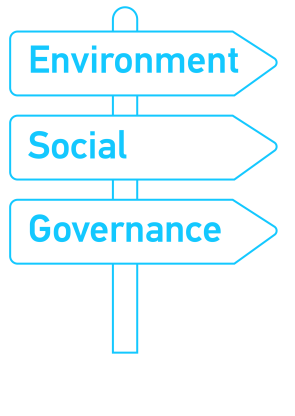
2023: Top 10 suppliers: minimum rating of 60/100 in EcoVadis (based on spend/€)
2030: All suppliers EcoVadis-rated: minimum rating of 47/100 (based on spend/€)
ESG Roadmap to 2030
As part of our commitment to responsible sourcing, Stahl is working on providing supply chain transparency for the renewable carbon feedstocks in our products. These materials must be sourced with care, to ensure that the land on which they are grown is not exposed to supply chain risks. ISCC PLUS certification is one way to ensure this.
Stahl has a dedicated Supply Chain Transparency Manager to oversee efforts to increase transparency in our supplier networks and support the drive toward a more responsible chemical value chain.
Building a responsible supply chain
The EcoVadis process is a key marker on our ESG journey and our ambition to contribute to a more responsible value chain. As part of our ESG Roadmap to 2030, we have set a target for all of our EcoVadis-rated suppliers to achieve a minimum score of 47 out of 100. We are taking proactive steps to achieve this, including working with our suppliers to help them adopt more responsible and sustainable practices, such as the transition to renewable feedstocks. This goes hand in hand with our increased focus on supply chain transparency.
At the same time, we are committed to maintaining the high standards we have set for ourselves in our EcoVadis assessment process and ranking. Our focus is on using the process to identify and address potential areas for improvement within Stahl, and to ensure that we make progress against the targets we have set for ourselves, such as our greenhouse gas emissions reduction target. We will also address new criteria as they are added to the EcoVadis assessment process, such as our impact on biodiversity.
Building on our EcoVadis achievement
In 2023, Stahl established a new position of Campus Manager for China, based at our new state-of-the-art Centre of Excellence in Foshan, Guangdong. There are now four Stahl Campus® locations with dedicated Campus Managers, who are focused on training and educating external stakeholders on the science and art of sustainable leather-making. The managers are based in the Netherlands, Mexico, India and China.
In 2023, 1,453 professionals from 136 organisations, including customers, universities, brands and OEMs, attended Stahl Campus® training courses around the world. Approximately 50% of our visitors were from clients in the leather supply chain. The remaining 50% were visitors from brands and universities. Online sessions also continued in 2023, though at a much lower frequency than 2020-2022.
A flagship Stahl Campus® course is the Automotive Leather Finishing Postgraduate Certificate course. The six-week course, held at Stahl Campus® Netherlands in 2023, was the third of its kind that Stahl has delivered. It was developed in collaboration with the University of Northampton (UoN), with students receiving a postgraduate certificate from the UoN upon completion. Eleven students graduated from the 2023 programme. We are planning to run the next PG Certificate six-week course during the 2024-2025 academic year.
Stahl Campus®
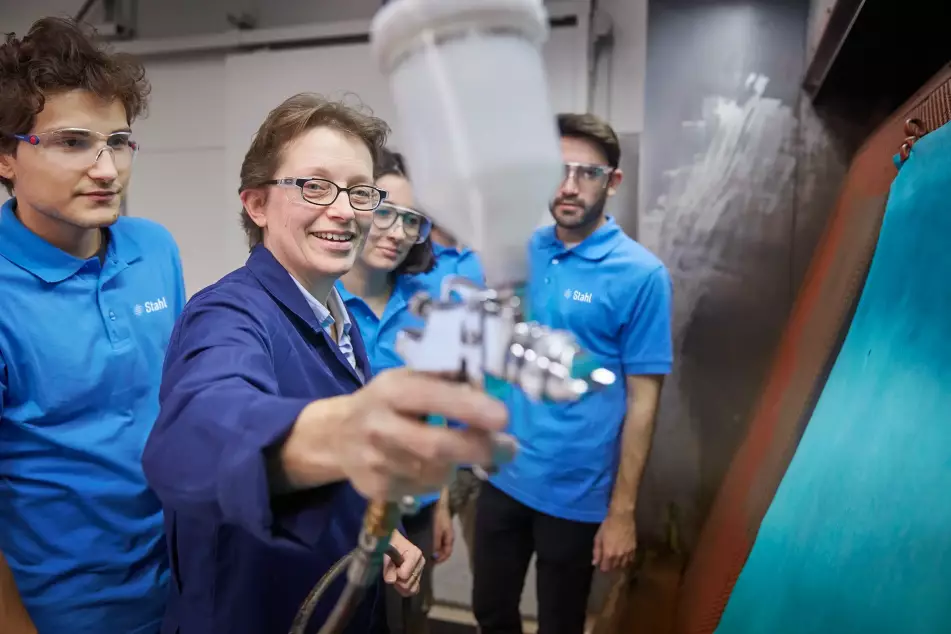
Stahl’s industry collaborations and partnerships amplify our positive impact and allow us to touch more lives as part of a responsible value chain.
Stahl is a founding member of the Renewable Carbon Initiative (RCI), which aims to accelerate the transition to renewable feedstocks within the chemical value chain. In 2023, Stahl participated in several RCI Working Group activities, including those focused on renewable carbon content labelling and life cycle assessments. We also contributed to several published papers on renewable feedstocks.
Meanwhile, Stahl continued to contribute to ZDHC, a multi-stakeholder initiative to eliminate unwanted substances from the fashion and footwear supply chain. This follows the election of Stahl’s Group Director of ESG to the ZDHC Board of Directors in 2021. Stahl is one of two chemical industry representatives on the Board.
Stahl is also an active member of the Leather Working Group (LWG), and served on the LWG Executive Committee as a board member from 2017 to 2021.
Working with our partners to strengthen industry governance
In December 2023, the European Commission, Parliament and Council reached a preliminary political agreement on the Corporate Sustainability Due Diligence Directive (CS3D), aimed at embedding human rights and environmental considerations in the operations and corporate governance of large European companies.
The directive sets out the obligations for businesses regarding actual and potential adverse impacts on the environment and human rights for their business chain of activities. These requirements relate to companies’ upstream business partners as well as some downstream activities, such as distribution or recycling.
We have set up a dedicated CS3D Working Group to understand the specific requirements for Stahl under the directive and how to address these.
CS3D
Code of conduct – all employees must sign this
Alert mechanism – Stahl’s whistleblowing policy
Annual corruption risk mapping
Third-party due diligence procedures – taking a risk-based approach
Internal and external accounting control procedures – including anti-corruption
Training programme – all Stahl employees follow annual anti-corruption e-learning training
Disciplinary procedure for non-compliant employees
Internal monitoring and assessment system
The EU Green taxonomy for sustainable activities is a classification system introduced in the context of the European Green Deal to clarify which investments are environmentally sustainable. The aim is to prevent greenwashing and to help investors make better choices about a company’s ESG credentials. The EU Taxonomy requires companies like Stahl to disclose whether their activities are eligible (may be sustainable) and aligned (are sustainable). In 2023, Stahl disclosed its eligibility and alignment with the EU Taxonomy based on the sales turnover of its water-based (low-carbon) products and capital expenditures linked to its sustainable activity. The alignment of these products is disclosed in the Stahl chapter of the 2023 Wendel Universal Registration Document.
EU green taxonomy
G1 Business Conduct
ESRS Governance
S1 Own Workers
S2 Workers in value chain
S3 Affected Communities
S4 Consumers and End-users
ESRS Social
E1 Climate Change
E2 Pollution
E3 Water
E4 Biodiversity
E5 Circular Economy
ESRS Environment
ESRS 2 General Disclosures
ESRS 1 General Principles
General Disclosure
Stahl has established a CSRD project team consisting of several Group functions, including ESG, Finance, Compliance and Product Stewardship, lead by a new role, the CSRD Reporting Manager. One of the first steps taken was to perform a double materiality assessment. This assessment determines which ESG topics defined by CSRD are material and which reporting standard should be applied. For example if Climate Change is assessed to be material for the company, then we report according to the Reporting Standard (ESRS) on Climate change. If it is not assessed to be material, then it is not mandatory to disclose.
An initial gap analysis was performed based on the double materiality assessment to determine the availability of the disclosures. To further prepare the CSRD disclosures for the year 2024 (to be reported in 2025 to Wendel), dedicated working groups have been established for each material topic.
While preparing for the CSRD is a major task (over 1,000 potential disclosures have been defined), Stahl welcomes this new approach to reporting. We believe the CSRD and the Reporting Standards (ESRS) will ensure a more balanced, transparent and consistent disclosure of sustainability information, and will strengthen sustainability performance, governance and management.
Preparing for the CSRD
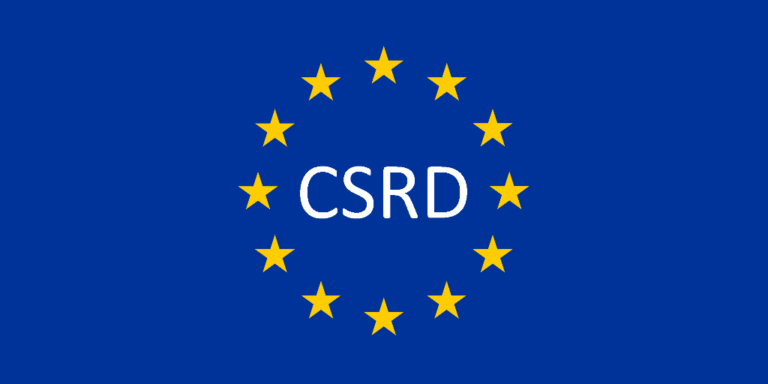

The French anti-corruption law, SAPIN II, requires certain companies to implement measures to prevent and detect corruption and influence-peddling offences committed in France and abroad. Stahl is subject to this law and has a compliance programme in place to implement the required measures. Stahl applies a zero-tolerance policy with regard to corruption.
French SAPIN II Law on corruption
Employee engagement is critical to compliance. Our 2030 goal is for 100% of Stahl employees to be trained in the elimination of corruption and bribery in all its forms. In 2023, 91.5% of all employees worldwide received anti-bribery and anti-corruption training.
In 2023, five whistleblowing cases were brought to light. These were promptly investigated and resolved.
More detailed information is available in the Stahl Compliance Report, which is available on our website. The report focuses on: a) Local laws and regulations b) SAPIN 2 (anti-corruption) legislation c) Sanctions and embargoes d) Safety, health, and environment (“SHE”) / Process safety e) Compliance policies / Whistleblower process f) Business Partner Compliance Procedure g) External business rating on sustainability and ethics h) Modern Slavery i) Diversity j) Compliance training, and k) Privacy rules.
Stahl Compliance Report 2023
Wet-end
Packaging
Solvents
Polyols, acrylics and isocyanates (coatings)
Whistleblower Policy
Stahl’s Whistleblower Policy allows employees to report suspicious behaviour, while offering the necessary guaranteed protection.
Assessing the impact of our products
Stahl has LCA/carbon footprint data for 353 products, representing 47% of total sales revenue. In this respect, the company is tracking ahead of its roadmap targets.
A list of all Stahl policies is available on our website.
Code of conduct for business partners
All business partners must abide by applicable anti-corruption laws and regulations of the countries in which they operate.
Stahl’s strategic direction and supporting policies are influenced by and aligned with the UN Sustainable Development Goals (SDGs), the Ten Principles of the UN Global Compact and the OECD Guidelines for Multinational Enterprises. Our policies are designed to mitigate potential risks across a wide range of issues, including human and labour-related rights, the environment and anti-corruption.
Stahl’s core policies related to ethics and compliance include:
Code of conduct for employees
Outlines what is expected of every person who works for Stahl.
Ethics and compliance
The working groups are responsible for collecting relevant information (including ESG data, procurement data and R&D data) to build a business case to support the transition from specific raw materials to lower-impact feedstocks. The findings from the respective group members are discussed in regular working group meetings.
The groups also carry out impact assessments and procurement risk assessments to support the Steering Committee in its final decision-making.
Stahl recently reassessed all 15 GHG scope 3 emissions categories with the help of an external consultant, providing an accurate understanding of how our scope 3 emissions are generated and formed the foundation for setting our scope 3 emissions reduction target. Following this, Stahl assigned dedicated Scope 3 Working Groups to help us make progress. The groups are responsible for reporting the impact of replacing specific categories of raw materials used in our processes with lower-carbon alternatives. They include:
Serena Portella

Mi Yan

Lidia Martinez

Michael Costello

Stahl’s ESG team actively engages with staff from finance, legal counsel, sales teams, product managers, researchers, product stewardship and operations to monitor the implementation of the company strategy and to discuss progress on new initiatives related to ESG performance and leadership. The team also meets with the Wendel Group ESG team on a quarterly basis to review progress against Stahl’s ESG Roadmap targets.
Stahl's ESG team

Michael Costello
Group Director ESG at Stahl

"Nowadays, we have much more data to support all our actions. I believe that new legislation, like the CSRD, for which we have a dedicated manager, will affect our strategy quite significantly in the future. We’re looking forward to that."
Reported scope 1 and 2 include emissions from Stahl’s 11 manufacturing sites, excluding the ICP Industrial Solutions Group locations acquired in 2023.
Note: non-manufacturing Stahl locations, such as offices, labs and home offices, were excluded from the 2023 reported GHG emissions.
ESG GOVERNANCE AT STAHL
One independent member

Five non-executive members


Two executive members: the CEO and CFO of the Stahl Group
*Note: this position was added to the leadership team after the acquisition of the ICP Industrial Solutions Group in March 2023.
Group Director Leather Chemicals
Group Director Performance Coatings
Group Director Packaging Coatings*
Group Director R&D and Technical Application
Group Director Human Resources
Regional management: the Stahl Group has four regional directors, for Greater China and East Asia Pacific, India/Bangladesh, North America, and Latin America. Europe and Africa are managed from the group's operational headquarters in the Netherlands.
The Extended Leadership Team, which is the Stahl Leadership Team plus the divisional directors, regional directors, and Group Support Services (e.g. Group Finance, ESG, HR, Marketing, Tax, Legal, Compliance and IT) meets on a quarterly basis. In 2023, the Extended Leadership Team met four times.
The Capex Committee, which is responsible for the review and authorisation of capital expenditure requests.
Chief Executive Officer (CEO)
Chief Financial Officer (CFO)
Chief Operating Officer (COO)
Chief Innovation and Development Officer
Group Director Sustainability and Marketing
Stahl Parent BV has an Audit Committee and a Nomination/Remuneration Committee.
The Internal Auditor of Stahl reports to the Audit Committee. The Audit Committee meets four times per year and discusses topics relating to internal and external reporting and corporate governance.
The Stahl Leadership Team is responsible for the day-to-day business management. Depending on the function and task, the Stahl Group employees report to the CEO, CFO, COO, the local and/or regional directors and/or to the Group Directors. An overview of Stahl’s Leadership Team is also available on our website:
Stahl Parent BV has a one-tier board that is responsible for the general affairs and strategy of Stahl Parent BV and its direct or indirect subsidiaries. The board is responsible for the formation and implementation of the corporate governance organisation of the Stahl Group, including its management and reporting structure in accordance with the articles of associations of the relevant group companies, and is responsible for ensuring compliance with such rules.
As at 31 December 2023, the Stahl Board of Directors consisted of:
Our governance model describes the legal management and decision-making structure of a company. Stahl Group has a matrix organisation with a strong local presence and regional set-up, and a centralised management located in the operational headquarters of Stahl Group, which is Stahl Holdings BV in the Netherlands. Stahl Group SA is the shareholder of Stahl Parent BV. As at 31 December 2023, Stahl Parent BV is the direct shareholder of Stahl Holdings BV.
Strengthening our commitment to climate change mitigation
We have a responsibility to our stakeholders to manage our business responsibly – as well as profitably – and to demonstrate business practices that are consistently ethical, transparent, and accountable. We believe this is the foundation of good governance.
Our approach to governance begins with listening to our stakeholders to understand their expectations of us and the issues that matter to them. From here, we can define the ESG topics that are material (significant) to our business and address them through our strategy and ESG approach. In 2023, we established a project team to prepare for the EU’s forthcoming Corporate Sustainability Reporting Directive (CSRD). The CSRD requires a double materiality assessment, which considers the impact of the company on society and the environment, as well as the impact of societal and environmental issues on the company. Stahl completed its first double materiality assessment in 2023 as part of its preparations for CSRD compliance.
In addition to governing our own operations, we strive to ensure a transparent, well-governed supply chain. By participating in sustainability rating programmes, such as EcoVadis, and encouraging our suppliers to participate, we monitor our own ESG performance while ensuring that our partners follow similar standards on issues such as environmental impact, health and safety and human rights.
Stahl is also an active member of industry initiatives such as the Renewable Carbon Initiative (RCI), the ZDHC Foundation and the Leather Working Group. These collaborations provide a platform for us to support good governance in our value chains.
Building a responsible supply chain
Stahl Campus®
Industry governance
CSRD and EU taxonomy
EcoVadis Platinum medal
Corruption (Sapin II)
Stahl Compliance Report 2023
Ethics and compliance
Stahl's governance
TOPICS
ESG Team
